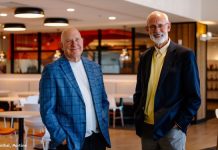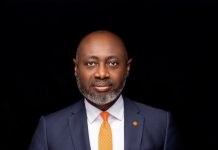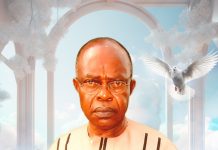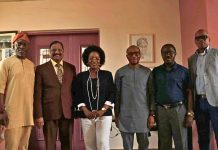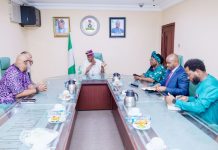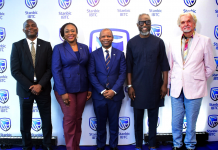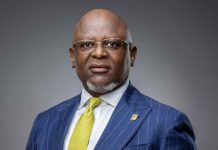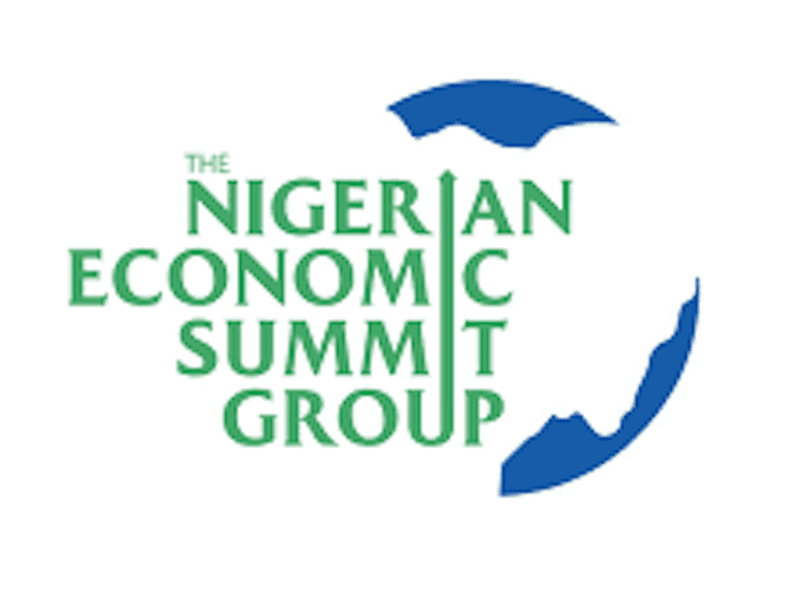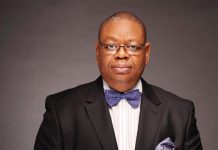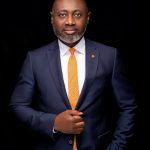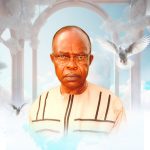- Buhari: Increased domestic production, value addition will address inflation, FX constraints
- Ahmed: Publication of FAAC allocation meant to help citizens demand accountability
- FG eyes N12trn in taxes by Dec
The Nigeria Economic Summit Group (NESG) has declared that any presidential candidate aspiring to lead the country next year must subscribe to eight consensus issues, saying those yet to attune themselves to such issues lack the capacity to head the country at this critical time.
NESG chairman, Asue Ighodalo, itemised the priorities of the group for the next Nigerian president yesterday in Abuja at the on-going 28th Nigerian Economic Summit (NES#28), with the theme, “2023 and Beyond: Priorities for Shared Prosperity.”
President Muhammadu Buhari, at the event, emphasised the urgent need to reduce inflation, saying it is “both a tax on the poor and disrupts long-term growth”.
Buhari stressed the necessity for focusing on boosting local production, value-addition, and supply, while moderating demand for foreign exchange in a transparent manner that could boost confidence.
Minister of Finance, Budget and National Planning, Mrs. Zainab Ahmed, said one of the reasons for publishing the monthly Federation Account Allocation Committee (FAAC) disbursements to states was to enable the citizens exercise their civic responsibility of following the financial inflows and asking questions concerning their utilisation.
Ahmed spoke at the opening plenary titled, “The Nigeria We Want.”
A panel discussant and founder of Stanbic/IBTC Bank Plc., Mr. Atedo Peterside, bemoaned the high level of poverty in the country, saying for the country to make meaningful progress, the issues of fuel subsidy and multiple exchange rates must be addressed urgently.
Earlier, in his keynote address on the “Nigeria We Need”, pioneer Chairman of NESG, Mr. Pascal Dozie, said a situation where public funds were used to build religious organisations or fund their activities was contrary to the constitution, which regards Nigeria as a secular state.
Ighodalo said the core issues for the incoming Nigerian president must centre on national job creation agenda, accelerated human capital development, social protection and development, and rebuilding and rejigging national institutions.
Others are effective, efficient and coordinated macroeconomic policy management; new national security architecture; heightened infrastructure development agenda; as well as a clear, articulate and effective response to humanitarian issues.
He said candidates seeking the offices of president and vice president without subscribing to those issues, did not understand the problems facing the country. He said such candidates lacked the capacity to lead the country, particularly, at this time.
Ighodalo stated, “Anyone of our candidates who seeks the office of president and vice president, who does not subscribe to these consensus issues, does not clearly understand the problems facing us as a country, has not thought about how these problems must be dealt with, and cannot have the capacity and understanding to lead this country at this time.
“We are in extremely difficult times, and we must push and pull ourselves out of these difficulties. Many of these difficulties are of our own making and we must retrace our steps.
“Some are exogenous, being globally induced, but we must have the cushioned capacity to weather and absorb them.
“So, at this summit, we must work harder than ever before, think differently and then, we must agree on creative and practical recommendations, which, if implemented, will initiate our national revival and pull us out of these difficulties.
“In addition to the difficulty of these times, in just over six months, a new federal government will be in place. The new government will most likely think differently, have a different approach and a different attitude to governance, and will certainly have different personnel.
“We must do everything within our power to ensure that the new government lands running, quickly identifying, determining and implementing economic and social policies that will set us firmly on the path of inclusive, shared and sustainable prosperity.”
Ighodalo noted that the theme for this year’s summit was aptly worded and captured the challenge before the country at this point in its history.
He said to share prosperity, the country must be prosperous.
However, he said, “From where we are today, how do we become a prosperous, safe, secure and law-abiding nation forged together as one? As we become prosperous, how do we equitably distribute and share our prosperity amongst our people?”
Ighodalo said a number of issues were being asked at the summit. These, he said, included the adoption of a roadmap, borne of different thinking that would deliver prosperity, “sufficient to support our vast and steadily growing population; the policy framework to ensure that the equitable circulation and sharing of that prosperity amongst all citizens is assured.”
Others are the identification of a few things the government must do over the next six months in its determination to leave behind a much better country.
According to him, there must be a broad-based consensus on the basic policies that the presidential candidates must sign up to, “If we, as a people, are to take them seriously as persons with the capacity, understanding, intellect and resources to run our country.”
To realise the goal of prosperity, Ighodalo said there must be a move to transform the Nigerian economy into the complete opposite of its current state (from hardship to true prosperity), within a specified time frame.
Ighodalo stated, “The Nigeria Agenda 2050, currently being drafted, proposes a timeframe of about 25 years. It means there can be no further regression, we can no longer accept just marginal improvement, or even what some may deem a decent improvement, we must improve at the speed of a maglev train.
“We must recalibrate our visioning and specifically state that we are working towards a specified target growth, by a specified date, benchmarking ourselves with the most prosperous countries in the world.
“I propose that our specified target must be ‘turning Nigeria into the most prosperous black country in the world, with a GDP per capita that is at par with the OECD (Organisation for Economic Cooperation and Development) countries, by 2050.”
He stated that the purpose of such specific prescription was to encourage a different way of thinking about economic development – one that defined not by incremental progress, but by objectively measurable goals.
He stated, “If we took that kind of clear approach, it would mean – just based on today’s OECD indices – that we would need to grow our GDP to somewhere between $4.5 trillion and $9 trillion – depending on whether we are able to remain at a population of around 220 million or continue to grow to the 450 million we have been projected to reach by 2050.
“We would need to build an economy that is 10 to 20 times the $440 billion economy we have today. So, we must set ourselves a task of growing at over 15 per cent every year.
“From where we are today, how do we grow our economy to 20 times today’s size within 25 years? Successful national turnarounds start first with addressing basic internal problems and fixing them, and then setting the country’s sights on externally driven growth possibilities.”
Stating that the country must start by achieving macroeconomic stability, Ighodalo said this was the foundation for economic growth.
He explained that Nigeria’s economic competitiveness was weak, adding that the country does not produce enough for local needs and cannot produce for the world.
The outgoing NESG chairman called for active steps to multiply the productive output, particularly, in areas that support foreign exchange earnings and enhance livelihoods, oil and gas (gas particularly), agriculture and its manufactured derivatives.
Ighodalo also stressed that the next government, by May 29, 2023, must revisit the issues of fuel subsidy removal, review the exchange rate management policies, reduce the rate of borrowings and focus on revenue enhancement measures without stifling the private sector.
He also said the next administration should identify appropriate mechanisms for tackling inflation, especially food inflation.
To sustain the needed turnaround, he said the new government “must be ready for office, show that it has an understanding of the issues and that it will utilise the most competent people”.
“I have assumed that the issues of security will continue to be decisively and effectively tackled,” he added.
Buhari, who was represented at the summit by Vice President Yemi Osinbajo, said with pressing national, and global economic challenges, and emerging local and global trends, the task ahead of the Nigerian nation required partnership, innovative thinking, and disciplined implementation by both governments and the private sector.
Buhari also stressed the need to focus on increasing local production and moderating demand for foreign exchange.
The president pointed out that in addition to the monetary policy measures being undertaken by the Central Bank of Nigeria (CBN) to rein in inflation, “We would need to increase domestic production of food and ensure that it gets to the market.”
Buhari further highlighted the need for increased productivity and value addition across different sectors of the economy so as to create more jobs for Nigerians, especially the youth, and increase national revenue for further development.
His address highlighted key issues, including youth development, improving macroeconomic conditions, effect of climate change, need for a just transition to net-zero emissions, debt-for-climate swap deal for African countries, and the launch of the African Carbon Market Initiative at the on-going COP-27 in Egypt.
Buhari emphasised the need for more intentional and focused investment in youths, especially in globally marketable skills, access to credit, protection of intellectual property rights of innovators, and inventors and access to global markets.
He said in spite of economic growth in recent times, revenue challenges had created debt problems for the country.
The president said, “On the positive side, the economy continues to grow with GDP growth at 3.54 per cent in the second quarter of this year. Non-oil revenues have similarly continued to improve due in part to strategic revenue initiatives, including the annual Finance Act.
“But it is still our revenue challenges that heighten the notion that we have a debt problem, which is really not the case, given that our debt to GDP ratio is just 23 per cent.”
Ahmed said a major reason for publishing the monthly FAAC allocations to states was to sensitise citizens to their civic responsibility to follow the funds and ask critical questions where necessary.
She admitted that there had been a weak link in the government’s communication with citizens, especially in tax education. But she said the current administration was exploring ways of improving citizens’ engagement.
The minister also said there was need to amend the social contract to ensure that more Nigerians paid their taxes.
Among other things, she said the country must urgently diversify its economy, stating that apart from telecommunications and ICT, no other sector of the economy currently recorded enough growth.
The minister said the government needed to mobilise external resources, especially Nigerians in the diaspora, to boost revenue earnings, adding that the country required an exponential growth rate to realise its development aspirations.
Ahmed said while efforts should be sustained to reduce poverty and high food prices, driven by high transportation costs, it was important to develop the transport sector and improve non-oil revenue.
She said the government was currently finalising the country’s Perspective Plan- Nigeria Agenda 2050 to replace Nigeria Vision 2020, which lapsed in December 2020.
“We are in the second year of the implementation of the NDP with the private sector taking the lead,” she added.
Ahmed said, “Although challenged by a shortfall in revenues, the government kept its pact by prioritising capital releases in favour of critical on-going infrastructural projects in the power, roads, rail, agriculture, health and education sectors. This is with a view to strengthening the Nigerian economy post-COVID-19 pandemic. Resources are being mobilised with less emphasis on oil revenues.
“As we implement the National Development Plan 2021-2025, the financing from the government will rely heavily on domestic resource mobilisation from non-oil revenue sources through the results of the implementation of the Strategic Revenue Growth Initiative (SRGI) and the Annual Finance Acts. This will improve and further diversify government revenues and entrench fiscal prudence and value for money.”
She highlighted the improvement in non-oil tax revenue, stating that as of September, the Federal Inland Revenue Service (FIRS) generated N10 trillion while the collections are expected to increase to N12 trillion by the end of December.
Ahmed advocated enhanced tax education to ensure that more Nigerians paid taxes willingly.
The minister said the theme for the summit was carefully chosen to provide direction for stakeholders to examine the progress made so far by the current administration in terms of achievement of the policies, programmes and projects encapsulated in the National Development Plan (NDP), 2021-2025.
On the panel discussion also was Peterside, who said some criminal elements in the government were taking undue advantage of government policies to enrich themselves at the expense of vulnerable Nigerians.
He argued that there was no way the country could achieve true prosperity when a few people in government hijacked the policies meant to better the lives of the citizens.
Peterside said for any meaningful headway in the country, the issues of fuel subsidy and multiple exchange rates must be addressed.
He said the “Nigeria we need must ensure that every citizen has a stake in the now and future of the country as well as make the states, not only the federal government, hubs of innovation.”
He lamented poor funding of agriculture and education, as well as the gaps in social infrastructure.
Peterside stated that the country’s present economic woes were a result of massive distortions, including petrol subsidies, and multiple exchange rates created during the present administration.”
In his keynote address Dozie said the country was full of illusions and delusions of democratic governance, adding that sovereignty currently resides with the states rather than the people.
He criticised the use of public funds to build religious organisations or fund their activities, saying it contravenes the country’s constitution.
Dozie said trust between the citizens and government was broken, stressing that the current democracy is only better than the military era. He said the government and criminals remained the true enemies of the people, adding that the country should be process-led to minimise frictions.
He stressed the need to prioritise the building of a private sector-led economy and a more conducive regulatory environment for businesses to thrive.
He said presidential aspirants and other top politicians contesting the 2023 elections must make it a priority to amend the Land Use Act, tackle insecurity and all forms of espionage, and ensure that the education curriculum met expectations.
Minister of State for Budget and National Planning, Prince Clem Agba, said the NDP 2021 – 2025 had a unique objective of establishing a strong foundation for concentric economic diversification.
Agba said this implied that the economy had already been diversified but needed to deepen the diversification effort within the sectors such that each sector could substantially increase its contribution to GDP and create more jobs.











